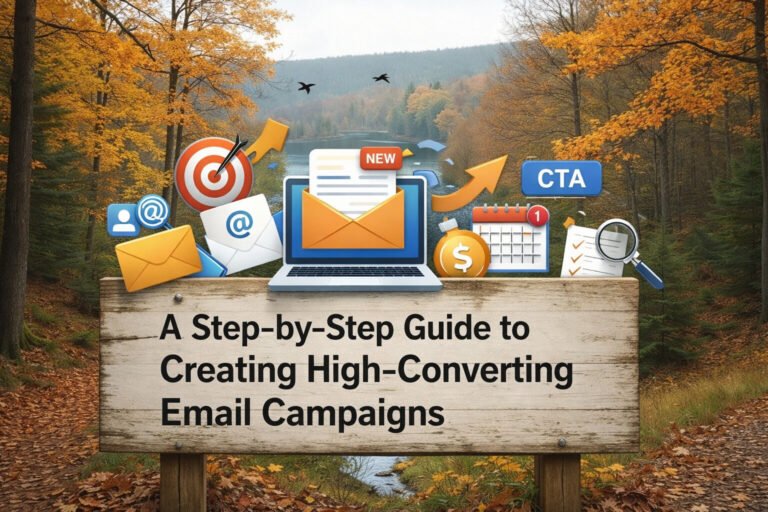“Unlock Facebook Monetization Requirements: Your Ultimate Guide to Earning Money with Passion and Profit”

Introduction to Facebook Monetization
Facebook has evolved into a formidable platform for content creators and businesses to generate revenue through monetization. As the digital landscape continues to grow, understanding Facebook monetization requirements becomes essential for anyone looking to take advantage of the platform’s vast audience. With millions of users engaging daily, content monetization offers opportunities that can lead to substantial financial gain for creators and businesses alike.
There are several avenues for monetization on Facebook, including ad revenue sharing, sponsored content, subscription models, and more. Each method comes with its own set of eligibility criteria that must be met to ensure that content meets Facebook’s community standards and monetization policies. It is critical for creators to grasp these requirements to avoid conflicts and optimize their opportunities. For instance, video content creators can earn through ad placements, while page owners may explore brand partnerships. Each strategy requires compliance with specific guidelines that are unique to Facebook.
Moreover, as Facebook rolls out new features and updates, the criteria for monetization may evolve, making it imperative for users to stay informed about the latest changes. Understanding these updates not only aids in meeting existing requirements but also positions creators and businesses to leverage new opportunities as they arise. The evolving nature of Facebook monetization means that continuous learning and adaptation are key components to success in generating revenue.
As we delve deeper into this guide, we will explore the specific eligibility criteria that users must meet, along with practical tips on optimizing content for monetization. By familiarizing oneself with these requirements, creators can enhance their chances of success on this powerful platform.
Page or Group Requirements
To successfully navigate the landscape of Facebook monetization requirements, individuals and organizations must familiarize themselves with the specific prerequisites applicable to Facebook pages and groups. These requirements are designed to ensure that content creators and communities maintain a standard of quality and engagement that benefits both users and advertisers.
Firstly, to qualify for monetization, a Facebook page must meet a minimum follower count, which is currently set at 10,000 followers. This threshold is crucial as it demonstrates a certain level of popularity and outreach. In addition to the follower count, Facebook evaluates engagement metrics to assess how actively followers interact with the content. Metrics regarding post likes, comments, and shares are vital; pages should exhibit consistent interaction from their audience to stand a chance for monetization.
For Facebook groups, the monetization requirements are somewhat similar, though inherently distinct. Groups must generally maintain a minimum of 1,000 members to qualify for some monetization options. However, the focus shifts more towards community engagement; groups must showcase active discussions, frequent posts, and a supportive atmosphere among members. This engagement not only enriches the user experience but also enhances the group’s attractiveness to potential advertisers.
The type of content shared on both pages and groups is essential in meeting Facebook monetization benchmarks. Content that is authentic, engaging, and adheres to Facebook’s community standards stands a better chance of attracting the audience necessary to meet these monetization requirements. Moreover, the nature of the page or group—be it a business, creator-focused, or a community-centric initiative—can impact the monetization features available, such as ad placements or membership subscriptions.
Content and Engagement Rules
When aiming to leverage Facebook’s monetization features, content creators must adhere to specific standards that gauge the eligibility of their content. Facebook monetization requirements stipulate that the content must be original, relevant, and engaging. Originality ensures that creators produce unique material that enhances the overall user experience on the platform. Content that closely resembles existing works or is derivative may not qualify for monetization, as it detracts from what Facebook envisions as valuable contributions to its community.
Relevance is another critical aspect; creators are encouraged to produce content that resonates with their target audience. Users are far more likely to engage with content that speaks to their interests, needs, or experiences. As such, aligning content with trending topics or current events can significantly boost engagement rates, a key metric Facebook considers for monetization eligibility.
Moreover, the platform emphasizes the importance of audience interaction. Encouraging comments, shares, and reactions not only enhances visibility but also plays a crucial role in meeting Facebook’s engagement criteria. Creators should consider employing calls to action within their posts, prompting users to participate by asking questions or sharing their opinions. Such interactions can lead to a more vibrant community around the content, further increasing the likelihood of meeting the monetization standards set forth by Facebook.
In conclusion, understanding and adhering to Facebook’s content and engagement rules is essential for creators attempting to monetize their efforts. By focusing on original, relevant, and engaging content, alongside fostering audience interaction, creators can better navigate the stringent landscape of Facebook monetization requirements and elevate their potential success on the platform.
Policy Compliance
Adhering to Facebook’s community standards and monetization policies is paramount for creators seeking to generate revenue through the platform. Failure to comply can result in severe consequences, including the potential demonetization of content or complete removal from monetization opportunities. Facebook has established clear guidelines that outline the types of content deemed inappropriate, including hate speech, graphic violence, misinformation, and adult content. Understanding these guidelines is the first step in ensuring that your content remains eligible for monetization.
Violation of these policies can lead to strikes against the content creator’s account, which may ultimately affect their ability to monetize future posts. If three or more strikes are received within a specified period, the account may face permanent penalties, rendering previous efforts to earn money futile. Thus, it becomes increasingly critical for content creators to maintain an awareness of these guidelines and their repercussions.
To foster compliance, creators should regularly review Facebook’s policies and stay updated on any changes. Engaging with fellow content creators and participating in community discussions can also provide valuable insights into best practices. This proactive approach not only secures the monetization of one’s content but also cultivates a responsible, respectful online environment.
Moreover, creators can benefit from using tools provided by Facebook, such as the Creator Studio, which helps track performance metrics and flag potential violations before they escalate into more significant issues. By adhering to Facebook’s monetization requirements and focusing on quality content that aligns with community standards, creators can navigate the platform effectively while maximizing their earning potential.
Location Restrictions
Understanding the location restrictions associated with Facebook monetization requirements is crucial for content creators aspiring to generate revenue from their platforms. The ability to monetize content on Facebook is not universally applicable; rather, it is influenced by the geographical location of the creator. Different countries have specific eligibility requirements that may vary significantly, impacting monetization capabilities.
For instance, countries like the United States, Canada, and the United Kingdom typically have more straightforward paths for creators to meet Facebook monetization requirements. These nations generally provide access to tools such as in-stream ads, subscriptions, or brand collaborations, which can enhance monetization potential. Conversely, creators in countries like Afghanistan or Syria may face more stringent regulations and reduced monetization options due to local economic conditions and restrictions imposed by Facebook itself.
Moreover, it is essential for creators to remain aware of local regulations that might influence their monetization strategies. For instance, some countries impose specific tax laws or require licensing for ad content, which can add complexity for those trying to earn from their Facebook presence. While Facebook outlines its own monetization requirements, local laws may necessitate additional compliance measures that must be met for successful monetization.
Furthermore, as Facebook seeks to grow its global market, it continually assesses and updates its monetization policies. Therefore, staying informed about any changes to both Facebook’s rules and local legalities is critical for content creators aiming to maximize their income potential. Ultimately, understanding the nuances of location restrictions and the varying landscape of eligibility is vital for successfully navigating Facebook monetization requirements.
Age Restrictions
Facebook has implemented specific age restrictions as part of its monetization requirements to ensure a safe and compliant environment for users and advertisers. Generally, users must be at least 18 years old to participate in monetization programs on the platform. This age requirement applies to various forms of content monetization, including ad revenue sharing, brand partnerships, and subscription services. The rationale behind this policy is to protect younger users from potential exploitation and ensure that content creators have the legal capability to enter contracts and agreements associated with monetization.
Age verification is a crucial component of these restrictions. Facebook employs several methods to confirm users’ ages, which may include ID verification processes or prompts for users to provide their birthdates. This diligence not only helps safeguard the integrity of monetization efforts but also fosters a responsible community where content creators are held accountable for their audience interactions. For creators targeting specific demographics, it is essential to align their content strategies with these age requirements. For instance, those focusing on a younger audience may need to reconsider their monetization approach, as underage users will not be able to contribute to or reliably engage with monetized content.
Moreover, content creators should also be aware of the implications surrounding mature content or themes that may not align with Facebook’s community guidelines. The platform emphasizes responsible content creation, and monetization pathways may be affected if the content is deemed unsuitable for certain age groups. Therefore, understanding and adhering to the age restrictions is crucial for anyone looking to successfully navigate the Facebook monetization requirements while maintaining compliance and fostering a safe digital space for users of all ages.
How to Meet Facebook’s Monetization Requirements
To successfully meet Facebook’s monetization requirements, content creators need to focus on several key strategies. Firstly, building a strong and engaged following is essential. This can be achieved by creating high-quality, relevant content that resonates with your target audience. Regularly posting engaging multimedia such as videos, images, and stories can attract more viewers and encourage them to follow your page. Consistency is crucial; posting on a regular schedule not only keeps your audience engaged but also signals to Facebook that you are an active creator.
Increasing engagement is another vital component in fulfilling Facebook monetization requirements. Encourage interactions by posing questions, conducting polls, or hosting live sessions. Engaging directly with your audience through comments or messages fosters a sense of community and can lead to higher engagement rates, which are considered favorably by the platform. Additionally, leveraging Facebook Insights can provide valuable data on what content performs best, allowing for informed decisions on future posts.
It is equally important to curate content that adheres to Facebook’s policies and guidelines. Familiarize yourself with their monetization policies to ensure that your content is compliant. Avoiding misinformation, hate speech, or copyrighted material will not only help in compliance with Facebook’s monetization criteria but can also enhance your reputation among your audience. Prioritize transparency and authenticity in your content strategy to build trust with your followers.
Lastly, tracking and measuring your progress is essential in understanding your growth and areas for improvement. Use tools such as Facebook Creator Studio or third-party analytics platforms to monitor key metrics like follower growth, engagement rate, and content performance. Such resources equip you to refine your approach and align with Facebook’s monetization requirements effectively. By implementing these strategies, you stand a greater chance of successfully qualifying for monetization on Facebook.
Common Challenges and Solutions
As content creators navigate the landscape of Facebook monetization requirements, they often encounter various challenges that can hinder their ability to earn revenue from their activities on the platform. Understanding these potential obstacles is crucial for any creator aiming for success in monetizing their content. One common challenge is meeting the eligibility criteria set by Facebook, which includes maintaining a specific level of engagement, adhering to community standards, and accumulating a minimum number of followers. When these benchmarks are not met, creators may feel discouraged.
To address the eligibility challenge, creators should consider refining their content strategies. Engaging with audiences by responding to comments, hosting live sessions, or creating polls can lead to increased interaction, helping to build a loyal following. Moreover, focusing on niche topics can attract a dedicated viewer base and encourage sustained engagement, which is essential to meet the Facebook monetization requirements.
Another considerable hurdle is algorithm changes that can impact visibility and reach. Facebook’s algorithm continuously evolves, presenting creators with the challenge of keeping content discoverable. To counter this obstacle, adopting an adaptive content strategy is advisable. This could involve diversifying the types of content shared, such as incorporating video, images, or stories, to appeal to a broader audience and improve engagement metrics.
Additionally, utilizing Facebook’s resources for support can be beneficial. The platform provides various tools and insights to help creators identify trends, measure performance, and adjust strategies accordingly. Engaging in Facebook groups specifically designed for creators can foster a supportive community, providing valuable insights and peer support. By leveraging these communities and resources, creators can work towards overcoming obstacles associated with monetization.
In conclusion, while challenges in meeting Facebook’s monetization requirements can seem daunting, strategic adjustments to content creation and leveraging available resources can significantly improve a creator’s chances for success. It is essential for creators to remain proactive and adaptive in the face of potential difficulties.
Conclusion and Next Steps
In examining the Facebook monetization requirements, it becomes evident that various criteria must be met to optimize financial opportunities on the platform. From maintaining a consistent posting schedule to adhering to community standards and ensuring engagement with followers, content creators have multiple avenues to explore. As highlighted throughout this guide, understanding the specific criteria laid out by Facebook is essential for anyone looking to leverage their content for profit.
As you reflect on your own Facebook presence, take time to review your content against these monetization requirements. Are you consistently posting engaging content? Do you adhere to the community guidelines mandated by Facebook? Assessing your current strategies and approach can provide a solid foundation for meeting the thresholds necessary for monetization. Additionally, it is important to engage meaningfully with your audience as this interaction can enhance your standing in the eyes of the platform.
For those who feel prepared to take the next steps, consider delving deeper into Facebook’s monetization features, such as ad placements, brand collaborations, and subscription models. Each offers unique opportunities based on your audience and content type. Moreover, it may be beneficial to join communities or forums dedicated to Facebook monetization where you can share experiences, seek advice, and stay informed about any changes to the requirements or best practices in the industry. Embracing a proactive approach can help you navigate the complexities of monetizing your Facebook content effectively.
By understanding and applying the Facebook monetization requirements outlined in this guide, you can create a pathway leading to potential revenue generation while fostering engagement and maintaining the quality of your content.



